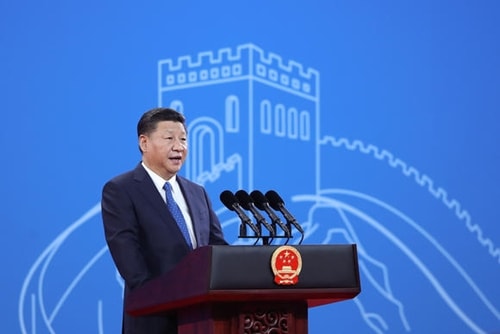Impact of the 19th Congress on China-US relations
The 19th Congress is likely to reinforce Mr. Xi's assertive stance in foreign relations and trade with the United States.
 |
| Chinese President Xi Jinping. Photo: Reuters |
The 19th National Congress of the Communist Party of China, which will be held in Beijing from October 18 to elect the country's leaders for the next several years, will affect the potential for cooperation between China and the United States on a range of key issues, from the North Korean crisis to bilateral trade, according to US News.
Writer Michael Schuman argues that the Donald Trump administration has been pressuring China on these issues for years, but so far there has been little progress. Beijing has been reluctant to increase pressure on its ally Pyongyang to curb its nuclear and missile programs. Chinese leaders have so far been unwilling to make concessions to the US on trade, despite President Trump's threats to impose tariffs on Chinese exports to cut the trade deficit with the country.
Observers expect that when President Xi Jinping completes his leadership during this congress, he will have more goodwill in foreign relations and trade with the US, opening up more opportunities for cooperation between the two countries.
However, Schuman believes that after the 19th Congress, Beijing will adopt an increasingly assertive foreign policy to promote its interests and challenge America's economic and political leadership in Asia and around the world.
According to Schuman, after this Congress, Mr. Xi will further consolidate power and can orient China's policy more firmly than in the previous five-year term, which can make China have a tougher approach in international issues.
To date, Xi’s administration has made its mark by injecting nationalism into its economic and foreign relations with the world. The Chinese president has sought to increase China’s influence by promoting global initiatives and institutions such as the establishment of the Asian Infrastructure Investment Bank (AIIB) to counter the World Bank (WB), or promoting the “Belt and Road Initiative” to connect China’s economy more deeply with Europe and Asia through infrastructure investments.
With the Trump administration reducing its influence in Asia, Mr. Xi has shown increasing assertiveness in relations with countries in the region.
"China will have a bigger voice and more weight," said Scott Kennedy, director of the China Economics and Politics Project at the Center for Strategic and International Studies (CSIS).
On the North Korea file, the biggest headache for the Trump administration, China is likely to continue to oppose increasing pressure on North Korea. Washington has urged Beijing to limit trade with North Korea to increase pressure on the country to abandon its nuclear program and end its provocations.
Despite stricter compliance with UN sanctions resolutions this year aimed at forcing Pyongyang to the negotiating table, China's policy of supporting its long-time ally is unlikely to change significantly after the 19th Congress.
"Fundamentally, China's stance on the North Korea issue has remained unchanged over the past two decades and will continue to be maintained in the future," said expert Kennedy.
In trade policy, Mr. Xi after the 19th Congress will be in a greater position to focus on economic issues as well as push through necessary reforms more quickly, including controlling rising national debt, reducing factory overcapacity and improving state-owned enterprise performance.
However, there are also concerns that, despite Mr. Xi’s public pledges to lead the way in promoting free trade abroad and opening up the domestic market, China still retains a large degree of state control over the economy and supports favored industries through preferential treatment and protectionism. Meanwhile, Mr. Xi has shown little interest in opening up its domestic market, which is off-limits to foreign companies, or in treating them more fairly.
Economists Julian Evans-Pitchard and Mark Williams of the Centre for Capitalist Economics worry that Beijing will not significantly change state intervention in the economy and trade, which is causing tensions with foreign trading partners, especially the US.
According to Schuman, American strategists will have to closely monitor China's 19th Congress, in order to have strategies for the relationship between the two countries in the new period, which many analysts call the "Xi Jinping Era".
According to VNE
| RELATED NEWS |
|---|


